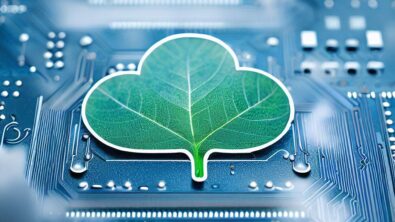How do cloud applications advance sustainability?

Podcast #2 in our new series with I-Connect007: Sustainability in Electronics Manufacturing
Our latest podcast episode features Susan Kayesar, PCBflow Product Manager. With over 20 years of experience in the PCB design and verification industry, Susan is an expert at cultivating creative software solutions to meet real-world customer needs. In this episode, Susan talks about sustainability in the PCB industry and how we can promote sustainable practices without becoming a rubber stamp or guilty of greenwashing.
Defining sustainability
Susan starts the podcast by defining sustainability and its importance. The United Nations World Commission on Environment and Development published a report in 1987 that has become the standard in defining sustainable development as “meeting the needs of the present without compromising the ability of future generations to meet their own needs.” Many businesses and governments have committed to sustainable goals such as reducing their environmental footprints and conserving resources.
However, there is a caveat: “greenwashing.” Our challenge as a software company is to provide a valuable tool to promote sustainable practices in the PCB industry without becoming a rubber stamp or guilty of greenwashing.
DFM as a collaborative effort
In the previous podcast episode, Susan’s colleagues Pat and Patrick talked about Design for Manufacture (DFM). DFM has always been important to designers and manufacturers to shorten time-to-market and ensure quality. As sustainable manufacturing practices become more prevalent and even mandated in the electronics industry, we can use DFM as a way to left-shift the work of preparing for and smoothly transitioning into the era of sustainable PCB manufacturing.
By collaborating through cloud applications, manufacturers can create DFM recommendations that accurately reflect their sustainable manufacturing capabilities, and designers can adopt them already at the design stage.
SMBs: a more sustainable manufacturing environment
SMBs are a growing part of the electronics market, and they are more agile and often at the forefront of new technologies. Sustainable manufacturing is no exception, and SMBs are playing an active role in reshoring, which is a sustainable practice. The CHIPS act in the US and EU is also encouraging SMBs to enter the industry, with the concept of: “think locally, act globally”. Both reshoring and CHIPS acts are creating an increased need for localized trained workforce.
Siemens cloud portfolio is offering SMBs access to advanced technologies and products that were previously out of reach, enabling them to take part fully in the sustainable manufacture AND sustainable product development process. Cloud applications allow for remote work (a sustainable practice), and a trained workforce can be anywhere, work in post-pandemic hybrid models, and collaborate effectively without the need to co-locate physically. This results in reduced commutes, fewer design iterations, more efficiency, and better designs that lead to less waste of materials and energy.
Bringing it back to DFM, Siemens cloud solutions such as PCBflow can easily enable the collaboration between manufacturers who have new sustainable manufacturing capabilities and designers who need to adopt them. Making manufacturing information transparent will help the entire industry better and more efficient.
Standards for sustainability
Our friends at IPC are working with industry leaders to develop standards for sustainable practices in the PCB industry. We will work with IPC and other industry thought-leaders to help them translate those sustainable practices into DFM standards and make the DFM guidelines available through the use of our cloud solutions. Open communication is key to promoting sustainable practice.
What does the future hold?
Susan believes that there are many more opportunities for SMBs, as they also become more important in the industry. They will also become more nimble, keeping up with the latest changes, and rely increasingly on cloud applications – which will continue to evolve and provide improved services, without the need for rolling out versions.
Listen to the full podcast:
Other podcasts in the series
Listen to the full series!


